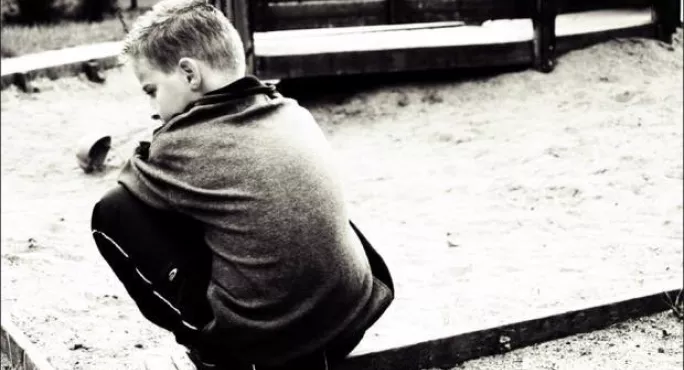- Home
- Poor pupils are suffering most, with or without school
Poor pupils are suffering most, with or without school

As the row continues over whether it’s safe or not to open schools, one particular group of people is caught in the middle: Britain’s poorest children.
As a school governor and former teacher for more than 20 years, including in some of the most deprived areas in the country, I’m frustrated with how their safety and educational needs have been pitted against each other.
Instead, it’s time the government is more transparent in its decision making, shows more respect for teachers’ views and works together with them as we try to balance all the children’s needs.
Poorest are hardest hit
The IFS reports that better-off households are spending 30 per cent more time with their children on educational activities than the poorest households.
This unequal access to home education has led people such as Steve Chalke, Oasis Academy head, to dismiss school reopening safety issues as a “middle-class concern”.
But if schools really aren’t safe, then whose children do you think are going to be the ones taking more of the risk?
“Middle-class” parents are more likely to be able to work from home, to have the living space and technological capability to keep their children educated and entertained.
All families are struggling to get the balance right at this time, lots are struggling with homeschooling, but many of the better-off families will have the freedom to choose to keep their children at home.
The poorest parents, who need to get back to work or live in cramped conditions, will not enjoy that same freedom.
Many of these children will come from black, Asian and minority-ethnic (BAME) backgrounds.
We have already seen how these communities have been affected by the virus. And we still have little evidence why.
And we also need to make a distinction between the poorest pupils and the most vulnerable children.
The latter of which should already be in a safe, socially distanced school setting during lockdown but are often falling through the gaps because of the lack of historic support for this group.
Lack of clarity only adds to anxiety
If the government is serious about tackling educational inequality, then these groups should be getting more attention all of the time - not just in a debate about whether or not they return to school in the middle of a pandemic.
The biggest concern of teachers I speak to is the lack of a clear strategy and consultation. Teachers desperately want to open schools, especially those in deprived areas.
But without proper reassurances or involvement in the conversation, the government’s centrally driven instruction will continue to put lives at risk.
Unions have been accused of playing politics, but their calls for evidence justifying school openings were ignored for far too long.
The government has belatedly committed to releasing the Sage guidance on school reopening. This must be the start of a proper conversation, not the end of it.
As for the very youngest children, how are these age groups expected to be able to maintain social distancing? This age group learn by working together, playing and being interactive.
They may need help in the toilet or consoling after falling over. Teachers will struggle not to care for them physically and safely.
There is no clear approach to implementation and this is causing chaos among the teaching community.
Teachers should have been at the heart of planning the phased reintroduction of schooling; instead, we are left with a vague command from above that will result in a wide-ranging approach from each school.
How is this fair to parents or children?
The needs of children are being overlooked
Teachers have always been heroes.
Many of them won’t be “returning” to work on 1 June as they have been teaching our key worker children under the most stressful conditions the whole time.
They have done this with no guarantee of extra funding, PPE or resources.
Many parents were demanding pay increases for teachers after realising how challenging the job was. Now some media outlets have fostered resentment between teachers and the public via their front pages.
Teachers don’t want this battle. They want to get this next phase of schools opening up right and safely.
But with little time to prepare and no clear guidance, safety is not assured. And it may be putting the very children we seek to protect the most, the poorest and most vulnerable, at a disproportionate risk.
It’s time for the government to listen to teachers and work together to put all children’s needs first.
Hina Bokhari is a Merton councillor and second on the Liberal Democrat London list for the 2020 London Assembly elections. Prior to this, she taught for 20 years in some of London’s most deprived areas
Keep reading for just £1 per month
You've reached your limit of free articles this month. Subscribe for £1 per month for three months and get:
- Unlimited access to all Tes magazine content
- Exclusive subscriber-only stories
- Award-winning email newsletters
